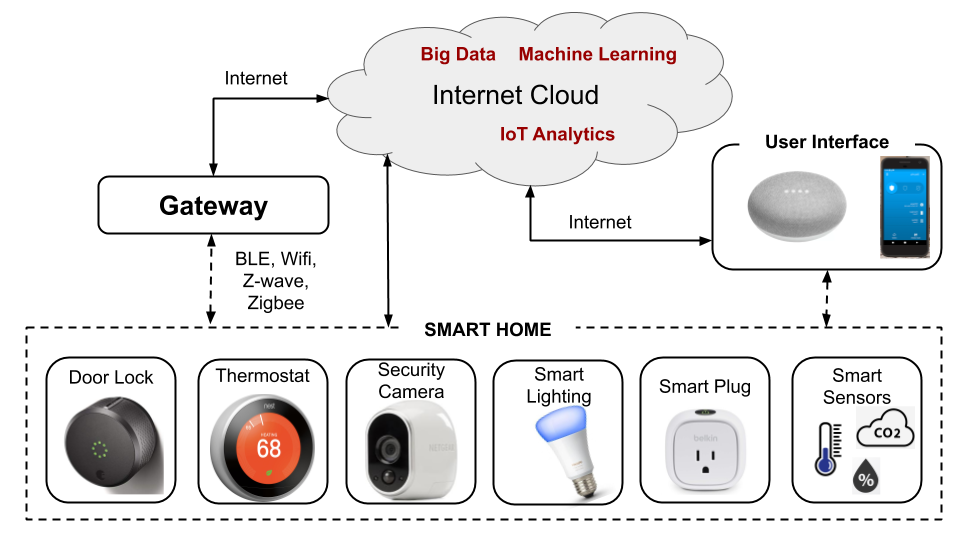AIM Uncovered
Exploring the latest insights and trends in technology and innovation.
Smart Homes or Smart Nightmares? The Devices That Make You Wonder
Discover if smart devices enhance your life or create chaos. Dive into the pros and cons of the tech that could be your worst nightmare!
Are Smart Home Devices Really Making Life Easier or Just Complicating It?
In recent years, smart home devices have surged in popularity, with many homeowners eager to embrace the convenience they offer. From smart thermostats that learn your schedule to voice-activated assistants that manage daily tasks, these innovations promise to enhance our lives by streamlining household management. For instance, devices like smart lighting systems allow users to control their home ambiance with simple voice commands or smartphone apps, creating a seamless and personalized environment. Additionally, many smart devices come equipped with energy-saving features, potentially lowering utility bills and reducing environmental impact.
However, the question remains: are smart home devices truly making life easier, or are they merely introducing unnecessary complications? While the allure of automation and efficiency is appealing, some users report frustrations with connectivity issues, complicated setups, and privacy concerns. With multiple devices often requiring different apps and platforms, the overwhelming number of systems can lead to confusion rather than ease. Moreover, reliance on technology means that when devices malfunction or if there is a power outage, homeowners may find themselves at a loss, raising doubts about whether these gadgets genuinely simplify our lives or create more challenges.

The Top 5 Smart Devices: Convenience or Invasion of Privacy?
The rise of smart devices such as smartphones, smart speakers, and smart home systems has revolutionized the way we interact with technology. These devices bring a level of convenience and connectivity that enhances our daily lives, allowing us to control everything from our lighting to our heating with a mere voice command. However, the Top 5 Smart Devices category is not without its controversies. While many users appreciate the ease of use, critics argue that these technologies often come at the cost of personal privacy, as they continuously collect data to improve functionality and user experience.
As we navigate this digital landscape, it's essential to evaluate whether the benefits of these smart devices outweigh the potential risks. The debate over convenience versus privacy intensifies with each new innovation. Many users find that the trade-off of convenience creates a dependency on technology that could lead to an invasion of privacy. In conclusion, before integrating smart devices into our homes, we must consider their implications and ask ourselves: Are we enhancing our lives or sacrificing our privacy in the process?
How to Secure Your Smart Home: Tips to Avoid a Digital Nightmare
In today's increasingly connected world, ensuring the security of your smart home is paramount. With a multitude of devices communicating over the internet, it’s critical to understand the risks involved. Securing your smart home begins with choosing robust, unique passwords for every device. Avoid using default passwords, as they are often easily accessible online. Additionally, consider enabling two-factor authentication (2FA) where available, as this adds an extra layer of protection against unauthorized access.
Regularly updating your devices is another essential step in maintaining a secure smart home. Manufacturers frequently release firmware updates to patch vulnerabilities and enhance security features. To bolster your efforts, ensure that your home Wi-Fi network is secure by updating the default settings on your router and using WPA3 encryption. Lastly, consider segmenting your smart devices on a separate network to contain any potential breaches, minimizing the impact on your personal data and devices.